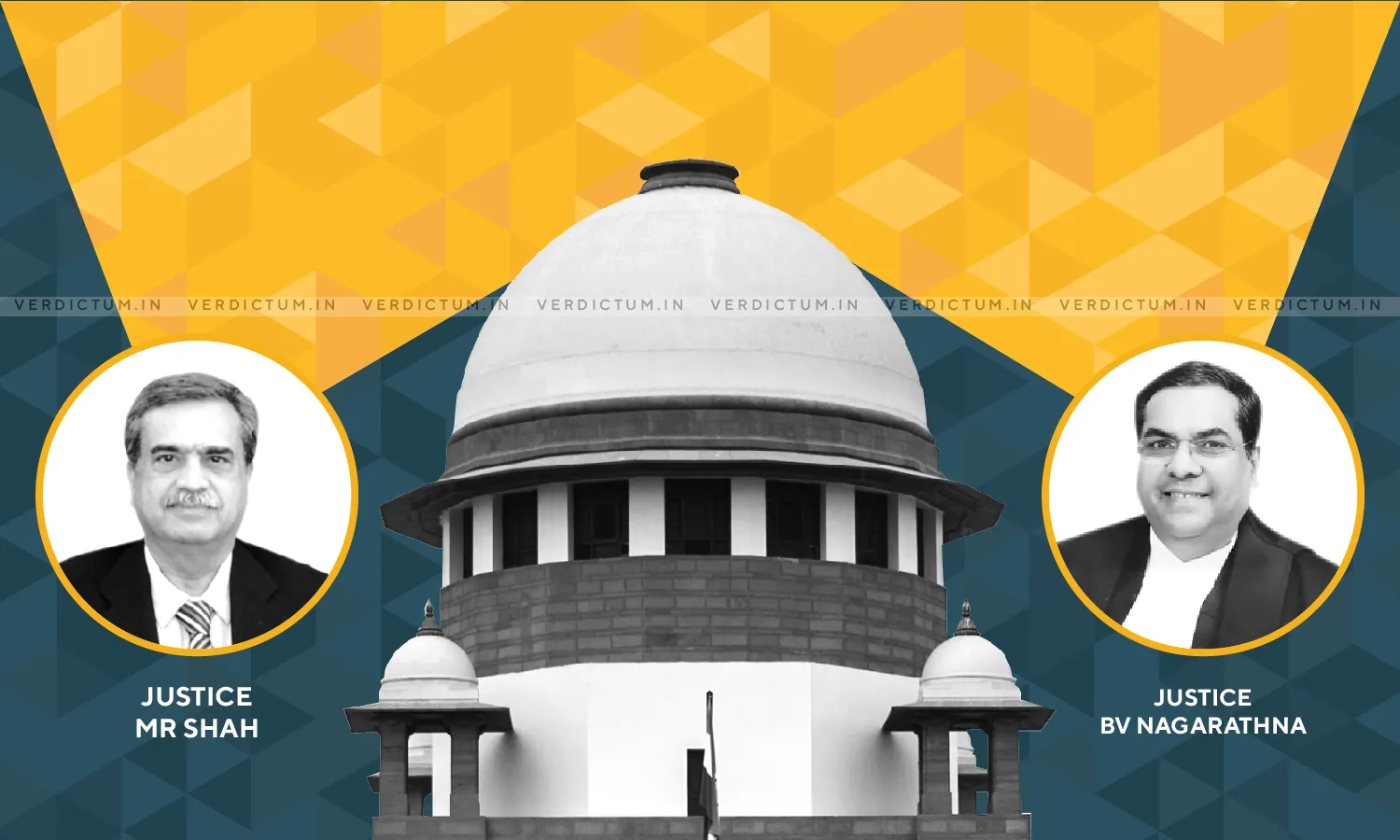Delinquent Has No Absolute Right To Be Represented In Departmental Proceedings Through Agent Of Choice- Supreme Court Reiterates

A two-Judge Bench of the Supreme Court comprising of Justice M.R. Shah and Justice Sanjiv Khanna has set aside a judgment of the Division Bench of the High Court of Rajasthan and held that an employee does not have an absolute right to be represented by a legal practitioner or a retired Bank official at a Departmental Inquiry. The Court has held that refusing such representation does not amount to a breach of principles of natural justice.
In the present case, the employee had committed irregularities while granting loans to farmers under the loan scheme and did not take adequate precautions and written mandates of borrowers, and thus committed misconduct. During the Departmental Inquiry, when the employee was asked to take the assistance of a defence representative (DR), he requested the authorities to allow his legal representative to become his defence representative. On several occasions, this request was denied. Subsequently, he requested a retired officer of the Bank to be his DR. When this request was turned down by the Department, he approached the High Court by way of Writ Petition.
A Single Judge Bench of the High Court allowed him to be represented through a retired officer of the Bank in disciplinary proceedings. The Bank filed an appeal against this. The Division Bench dismissed the appeal on the ground that the Regulations 2010 did not prohibit the utilization of services of ex-employee of the Bank.
Thereafter, the Bank approached the Supreme Court.
The issue before the Apex Court was whether the respondent employee, as a matter of right, is entitled to avail the services of an Ex-employee of the Bank as his DR in the departmental proceedings?
The Court relied on Kalindi and Ors v. Tata Locomotive & Engg. Co. Ltd and Dunlop Rubber Co. (India) Ltd v. Workmen and held that-
"...there is no per se right to representation in the departmental proceedings through a representative through own union unless the company by its Standing Order recognized such a right. It is observed that refusal to allow representation by any Union unless the Standing Orders confer that right does not vitiate the proceedings. It is further observed that in holding domestic enquiries, reasonable opportunity should be given to the delinquent employees to meet the charge framed against them and it is desirable that at such an enquiry the employee should be given liberty to represent their case by persons of their choice, if there is no standing order against such a course being adopted and if there is nothing otherwise objectionable."
The Court noted that the delinquent's right to be represented through counsel or agent can be restricted, controlled or regulated by statute, rules, regulations or Standing Orders.
The High Court based its decision on the ground that the Regulations concerned neither permit nor restrict availing of services of any outsider or ex-employee. However, it disregarded the Handbook Procedure, Clause 8 of which provides that a DR shall be a serving official or employee from the Bank.
The Apex Court harmoniously construed the Handbook Procedure and the Regulations and noted that the delinquent does not have an absolute right of representation through an agent of his choice in departmental proceedings. The same can be restricted by the employer.
"As per settled proposition of law and as observed herein above, in decisions referred to herein above, the only requirement is that delinquent officer must be given fair opportunity to represent his case and that there is no absolute right in his favour to be represented through the agent of his choice. However, at the same time, if the charge is severe and complex nature, then request to be represented through a counsel can be considered keeping in mind Regulation 44 of Regulation, 2010 and if in a particular case, the same is denied, that can be ground to challenge the ultimate outcome of the departmental enquiry. However, as a matter of right in each and every case,irrespective of whether charges is severe and complex nature or not, the employee as a matter of right cannot pray that he may be permitted to represent through the agent of his choice", held the Court. As such, the Court found that there was no violation of principles of natural justice in the present case.
Holding that the view of the Single and Division Bench of the High Court is unsustainable in law, the Supreme Court allowed the appeal and quashed and set aside the impugned judgment of the High Court.

